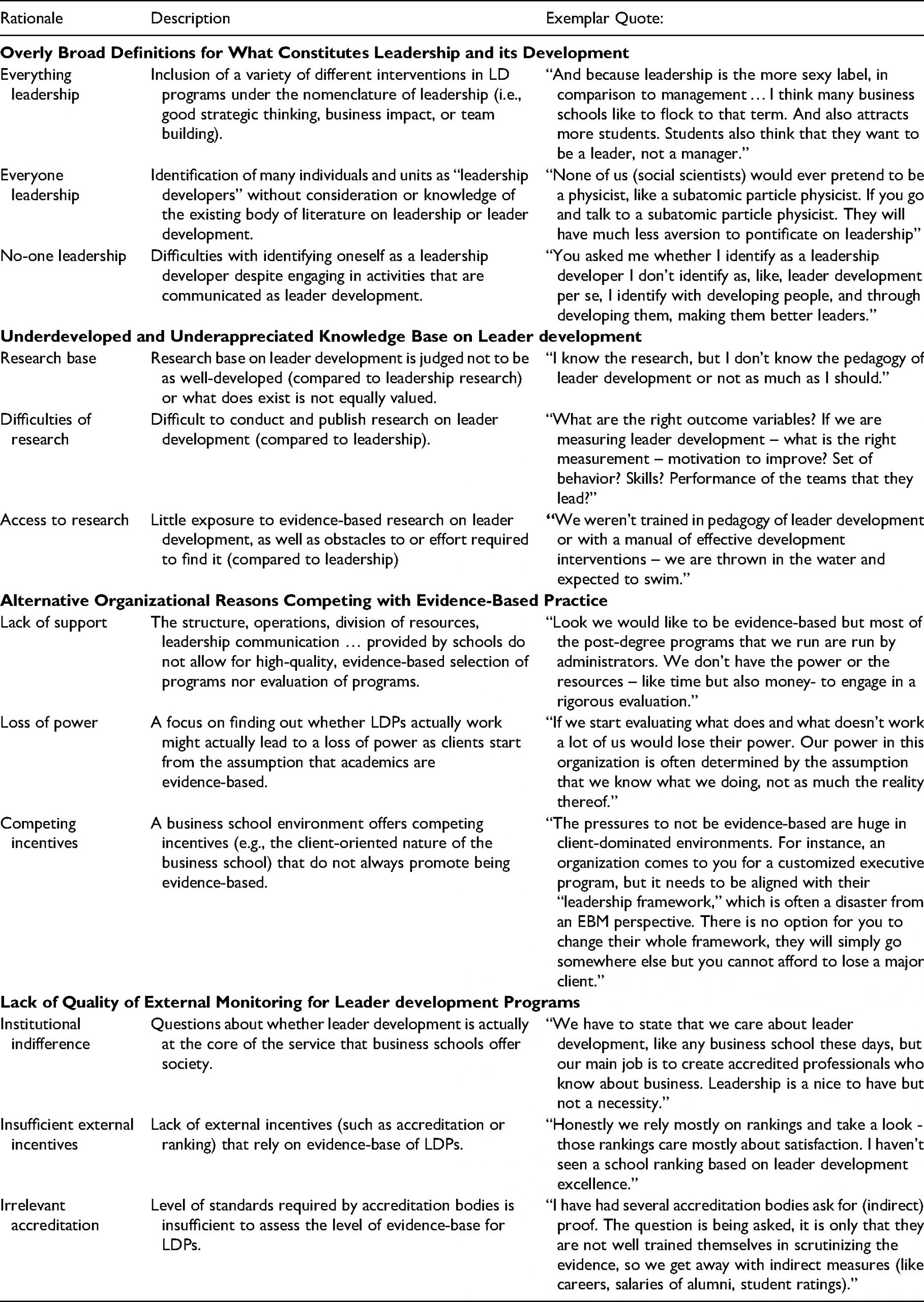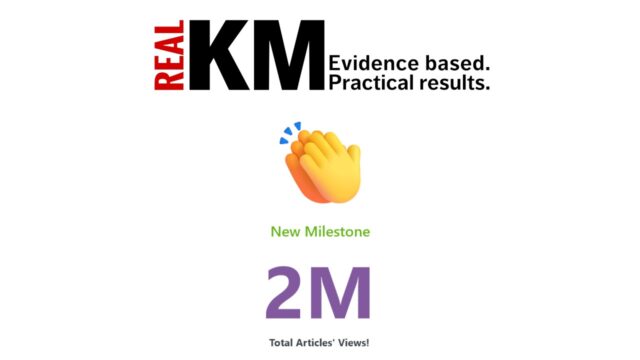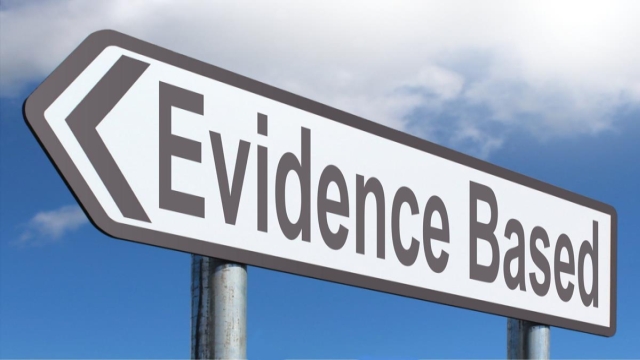
Business school leadership development programs are not always evidence-based: What about KM education?
This article is part of two series of articles: evidence-based knowledge management and education and professional accreditation for knowledge managers.
Drawing on research and advice from the academic community, RealKM Magazine actively supports and promotes evidence-based management because it leads to better decisions. However, the abstract of a newly published paper1 states that:
Academics have lamented that practitioners do not always adopt scientific evidence in practice, yet while academics preach evidence-based management (EBM), they do not always practice it.
The paper focuses on the widely used practice of leadership development, which the authors advise is often critiqued for lacking evidence. Analyzing 60 interviews with academic directors of leadership centers at top business schools, the authors found that:
- the selection of programs does not always align with scientific recommendations
- there is a clear disconnect between the current use of certain practices and the scientific contingencies established in the literature for the use of those practices
- schools don’t always engage in high-quality program evaluation.
As shown in Figure 1, respondents offered various rationales to explain what drives them to (dis)engage from an evidence-based leader development approach.

Establishing an EBLD-identity
A root cause of the respondents’ rationales was found to relate to a lack of an identity as an evidence-based leadership developer (EBLD).
The authors advise that behavioral integrity theory and research shows that a clear and salient identity can drive espousal as well as enactment of a behavior. So, without the clear identity of EBLD, business school faculty and administrators may espouse evidence-based leadership development, but not be motivated to forego easier, pragmatic alternatives in lieu of the labor- and time-intensive path of EBLD.
To assist business school faculty and administrators to establish an EBLD-identity, both individually and collectively, the authors developed the four-step process shown in Figure 2.

Implications for knowledge management
This study brings to mind similarly important questions for knowledge management (KM) education:
- To what extent are KM education programs evidence-based?
- What drives KM educators to (dis)engage from an evidence-based approach?
- What is the root cause of any disengagement, and what can be done about this?
Article source: Walking Our Evidence-Based Talk: The Case of Leadership Development in Business Schools, CC BY 4.0.
Header image source: iStock.
Reference:
- Leroy, H. L., Anisman-Razin, M., Avolio, B. J., Bresman, H., Stuart Bunderson, J., Burris, E. R., … & Vongswasdi, P. (2022). Walking Our Evidence-Based Talk: The Case of Leadership Development in Business Schools. Journal of Leadership & Organizational Studies, 29(1), 5-32. ↩
Also published on Medium.






